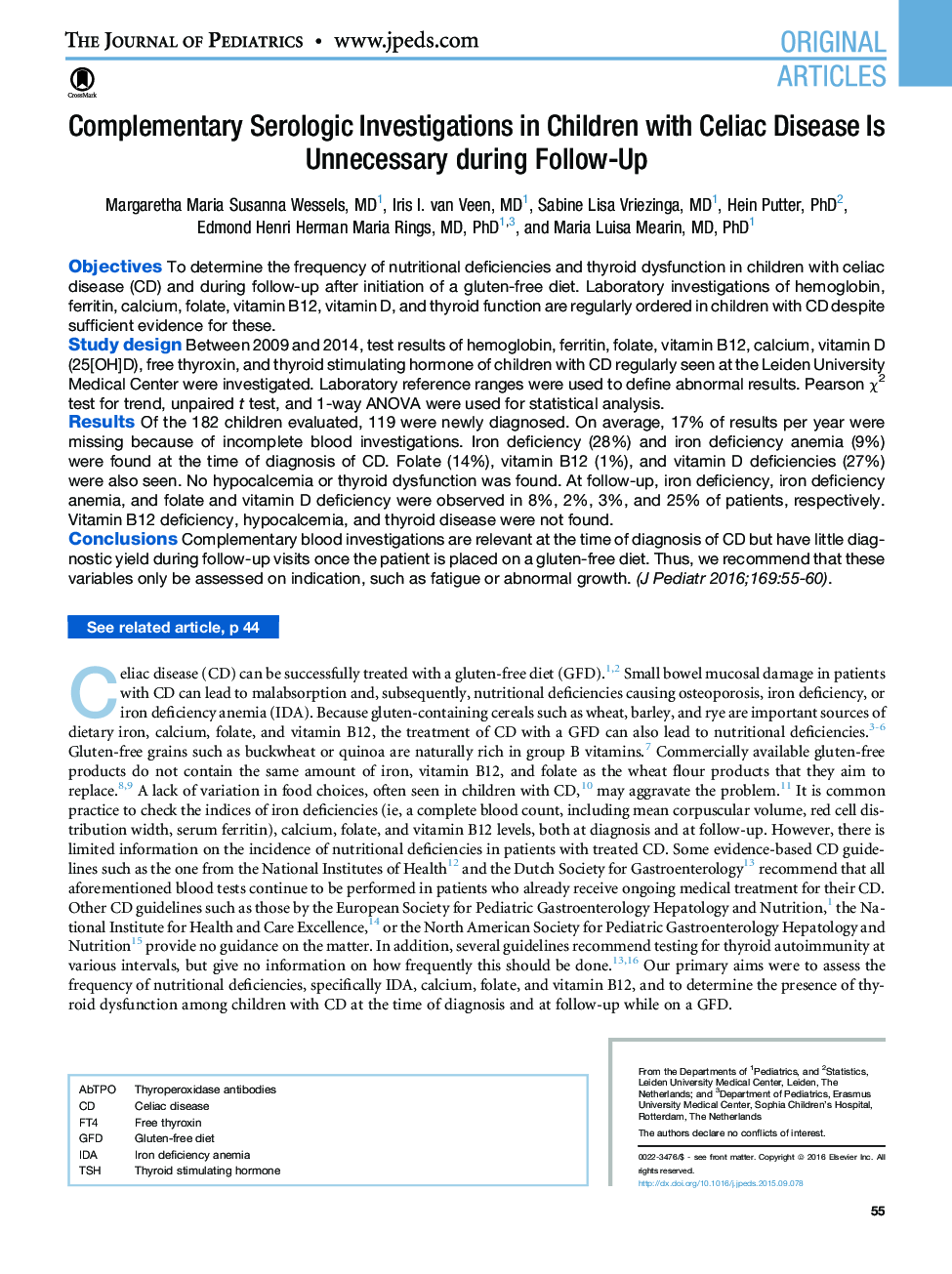| Article ID | Journal | Published Year | Pages | File Type |
|---|---|---|---|---|
| 4164631 | The Journal of Pediatrics | 2016 | 6 Pages |
ObjectivesTo determine the frequency of nutritional deficiencies and thyroid dysfunction in children with celiac disease (CD) and during follow-up after initiation of a gluten-free diet. Laboratory investigations of hemoglobin, ferritin, calcium, folate, vitamin B12, vitamin D, and thyroid function are regularly ordered in children with CD despite sufficient evidence for these.Study designBetween 2009 and 2014, test results of hemoglobin, ferritin, folate, vitamin B12, calcium, vitamin D (25[OH]D), free thyroxin, and thyroid stimulating hormone of children with CD regularly seen at the Leiden University Medical Center were investigated. Laboratory reference ranges were used to define abnormal results. Pearson χ2 test for trend, unpaired t test, and 1-way ANOVA were used for statistical analysis.ResultsOf the 182 children evaluated, 119 were newly diagnosed. On average, 17% of results per year were missing because of incomplete blood investigations. Iron deficiency (28%) and iron deficiency anemia (9%) were found at the time of diagnosis of CD. Folate (14%), vitamin B12 (1%), and vitamin D deficiencies (27%) were also seen. No hypocalcemia or thyroid dysfunction was found. At follow-up, iron deficiency, iron deficiency anemia, and folate and vitamin D deficiency were observed in 8%, 2%, 3%, and 25% of patients, respectively. Vitamin B12 deficiency, hypocalcemia, and thyroid disease were not found.ConclusionsComplementary blood investigations are relevant at the time of diagnosis of CD but have little diagnostic yield during follow-up visits once the patient is placed on a gluten-free diet. Thus, we recommend that these variables only be assessed on indication, such as fatigue or abnormal growth.
